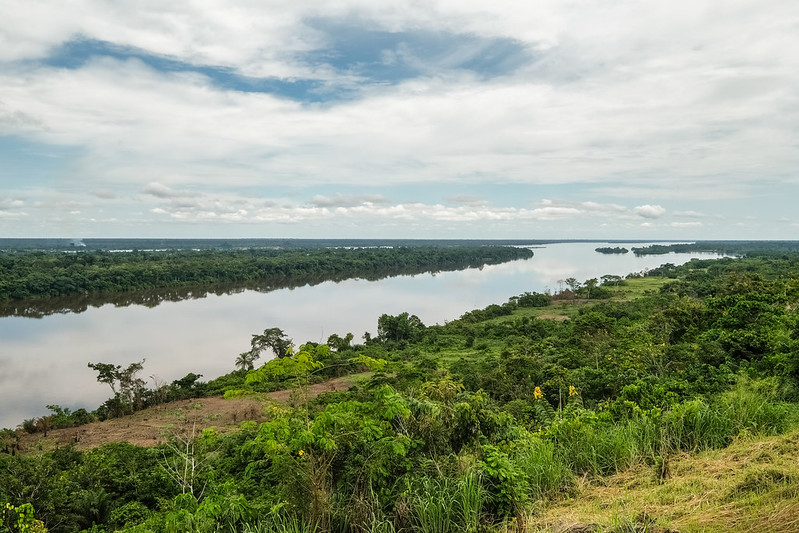Slot 2: Early responses to protect and manage peatlands in the Congo Basin

Mangroves and peatlands are important ecosystems of the Congo Basin. The services that they provide are fundamental to several sectors, so there are important livelihoods and economic considerations associated with their management. The Congo Basin’s peatlands host critical carbon stocks; are home to rare and endangered species; and hold and clean vast amounts of water, and as such are crucial to protect and manage sustainably. To secure the services that these unique peatland ecosystems provide, significant conservation efforts will be required – in combination with investment in, and development of, sustainable livelihoods for the prosperity and security of local and regional populations.
While some information was already available for mangrove ecosystems, peatland studies and
management practices have recently attracted considerable interest from stakeholders through the efforts of the Global Peatlands Initiative and its partners. Research on the Congo Basin’s Cuvette Centrale peatlands has led to more attention on these ecosystems – both in the Basin and across the globe.
Members of the multi-stakeholder, non-profit Congo Basin Forestry Partnership (CBFP) have been discussing the significance of the Congo Basin peatlands for the global response to climate change. With a view to better-including these ecosystems in climate and environmental action for the region as a whole, this two-part side event will provide a platform to discuss the experiences and progress of other countries in integrating peatland conservation, restoration, and sustainable management into national policies and plans. In particular, we will discuss commitments under the United Nations’ Framework Convention on Climate Change (UNFCCC) such as nationally-determined contributions (NDCs) and long-term strategies (LTS). We will also explore planning and implementation vehicles such as nationally-appropriate mitigation actions (NAMAs); National Adaptation Plans (NAPs); and reducing emissions from deforestation and forest degradation while fostering conservation, sustainable management of forests, and enhancement of forest carbon stocks (REDD+), as well as other development plans, strategies, and budgets – including for COVID-19 recovery.
Objectives of the side event
- Clarify and map out the current leading global drivers of wetland – specifically peatland – deforestation and degradation
- Present key principles for sustainable livelihood considerations related to these ecosystems
- Further develop understanding of the institutional and governance aspects for improving the management of peatlands and other wetlands
- Identify strategies for reducing wetland destruction
- Explore how peatlands and mangroves can be better mainstreamed into climate and environmental action in the Congo Basin countries
CIFOR-ICRAF speaker
Agenda
Introductory note
Rene Siwe (USFS)
Presentations
DRC: current activities on peatlands and perspectives on REDD+
Jean Jacques (UGT)
Framing the governance of peatlands in the Congo Basin
Denis Sonwa and Felicien Kengoum, CIFOR-ICRAF
Peatlands in climate action and national contributions – and their monitoring
Rémi d’Annunzio and Aurélie Shapiro, FAO
The definition of peatland in DRC, and opportunities for measurement, reporting, and verification
Florence Bernard and Rene Siwe, USFS
Peatland partnerships through the Global Peatlands Initiative: advancing action for the conservation, restoration and sustainable management of peatlands through South-South collaboration
Dianna Kopansky, UNEP
Discussion with the audience
Denis Sonwa (CIFOR-ICRAF)

















